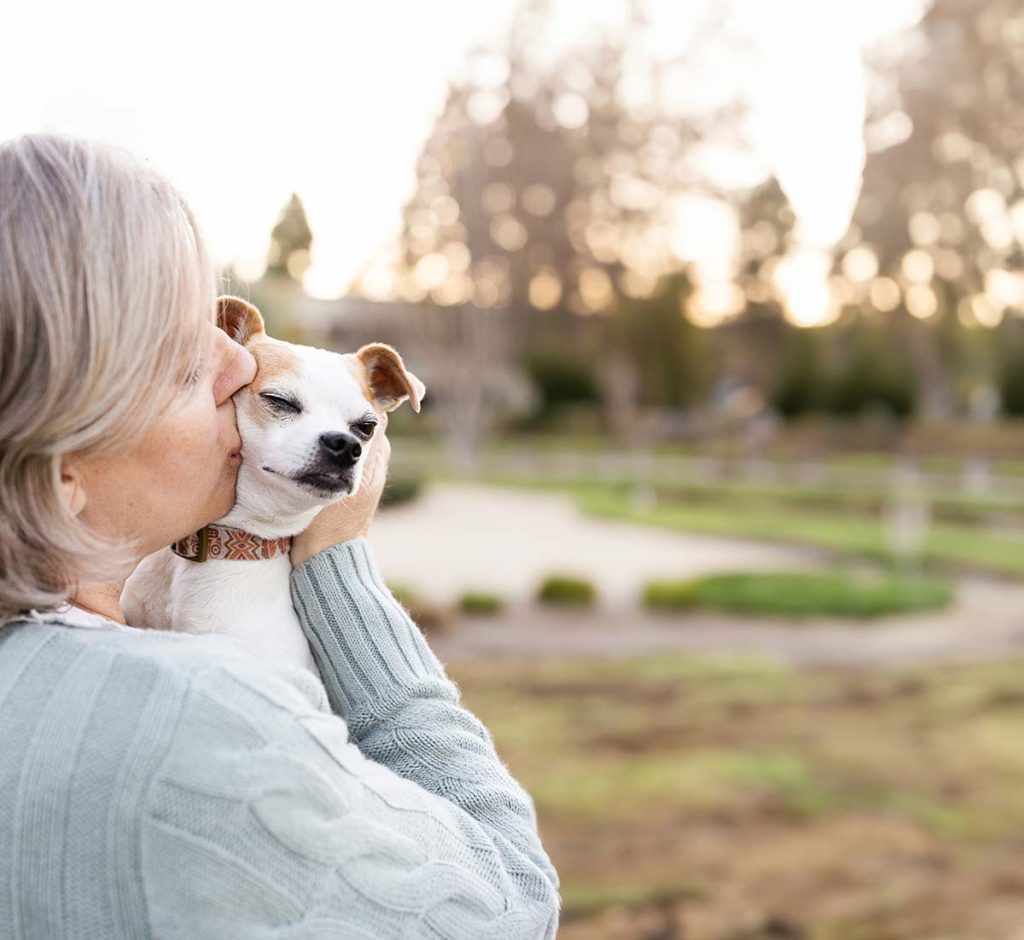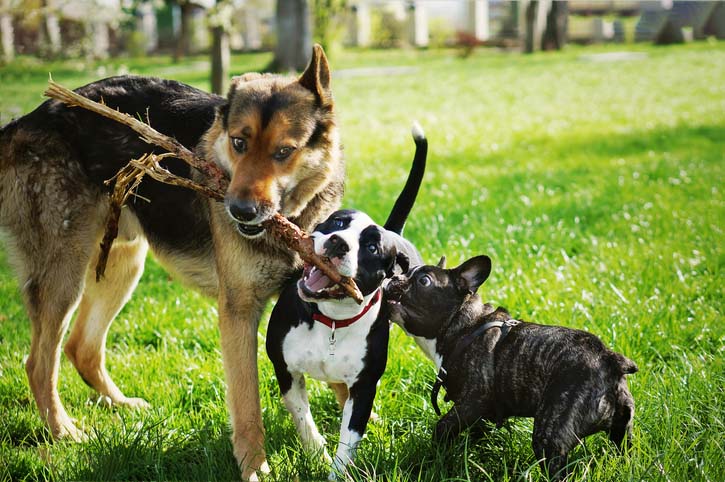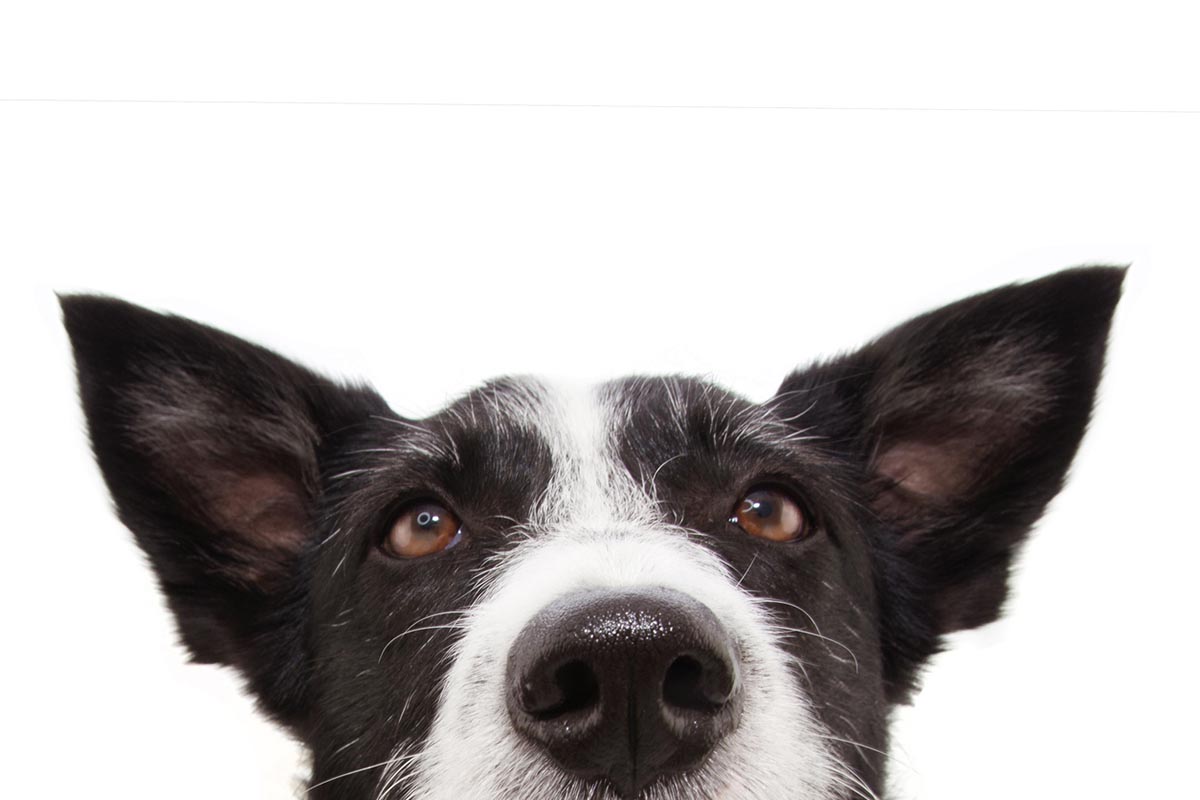Your dog eats, sleeps, barks, and thinks all the time. You can gather some information on how dogs think through visual cues.
You can see the eyebrows twitching and hear the sighs when she’s bored and waiting for you to play or go for a walk. Or, what is she thinking when she gives you that inquisitive look, head cocked sideways? What are they saying through their body language?
Of course, dog owners would love to know what their dog thinks. How much do dogs understand?
Fortunately, some scientists have insight into canine cognition.
These research groups work in canine cognition centers at high-profile places like Boston College, Duke, and Yale universities. These scientists study cognitive sciences such as psychology and anthropology. In recent years, they’ve applied what they’ve learned from these classic disciplines to the dog mind and how it works.
You might be surprised by how much your dog knows!
Dogs Understand Us Better Than We Understand Them

Dr. Brian Hare directs the Duke Canine Cognition Center at Duke University and has co-authored several books, including The Genius of Dogs: How Dogs Are Smarter Than You Think. He shares an example of how he discovered his dog Oreo learned to follow his pointing gesture. When he threw the ball and pointed, Oreo headed in the right direction.
An evolutionary anthropologist, Dr. Hare has spent his career studying animal cognition. He says, “Dogs can interpret human gestures and visual cues,” he believes they’re born with this understanding after years of evolving.
It’s not surprising our pet dogs after all these years of domestication. Man’s best friend lives near us and relies on us for food and shelter. They often sleep in our beds and cuddle on the couch.
Dog domestication dates back thousands of years when Indigenous people in the Arctic and Siberia relied on working dogs as hunters and sled dogs.
Today’s canine companions evolved from that early domestication into today’s pampered pooches. Researchers like Enikő Kubinyi and Adam Miklósi of Eotvos University in Budapest, Hungary, study dogs and hand-reared wolves to discover what’s genetic and what’s an evolution in dog behavior. Initial studies found doggy behavior became more communicative over the years.
Your Dog Has the Vocabulary of a Toddler
Don’t underestimate your dog’s brain! Yes, your dog understands what you say. It’s not your imagination. Your dog CAN spell, and your pup definitely understands essential words like “treat” and “walk.” Some dogs even learn to spell words like W-A-L-K and L-E-A-S-H.
Canine behaviorist Dr. Juliane Kaminski is another pioneer in the field of canine cognition. She’s credited with being one of the first to discover a border collie named Rico, who learned about 200 words. Some of these words were assigned to specific toys, and Rico learned to identify and retrieve all of them. A human two-year-old knows between 100 and 200 words.
Other research shows some dogs can learn hundreds more words with the right training. Dr. Hare tells of a dog who’s learned up to 800 words. Yet, no matter how extensive your dog’s vocabulary, they don’t speak human language or write…not yet, anyway.
Dogs are Problem Solvers

Some dogs are super smart and have advanced problem-solving skills.
Dr. Laurie Santos, a cognitive scientist at Yale University, says dogs work and might be better problem solvers than people.
Dr. Santos shared an experiment where she demonstrated how to open a treat-filled container to a dog. The dog watched closely. She jiggled the handle and opened the container. But the handle had nothing to do with opening the container. It was a distraction. They ignored the useless handle when she offered it to the dog and nosed the container open.
She says dogs are “less irrational in following our behavior than humans are,” meaning they can figure things out faster than pet parents themselves because people often imitate more than solve problems.
Our canine companions can train to sniff out cancer or drugs, and some dogs are excellent search-and-rescue animals. But your dog doesn’t have to work to enjoy problem-solving. You can add dog-friendly puzzles and games into your dog’s life to develop her problem-solving skills and test her canine cognition for fun.
Just how smart is your dog?
Dr. Hare and his research team created Dognition, a series of dog cognition tests you can try on your pup. Think of it as a form of dog training.
One of the tests lets you hide a treat and test how quickly your dog can find it. You can hide the treat under cups or pieces of paper. Let your dog see where you put it, and then move the treat to another area out of your dog’s site. Most dogs will go straight to where they saw you hide it.
Dogs Have a Memory
What do dogs think of memories? When your pup perks up at the rustling of a dog treat bag, that’s a memory. When your dog habitually takes the same walk every time you go out, that’s a memory. And when you invite your pup along in your car with their favorite toy, that’s an exciting memory! At least judging by the enthusiasm of many dogs.
Dog behaviorist Julie Burgess at Senior Tail Waggers partly classifies her dog’s memory by her “magic microwave.” What’s a “magic microwave?’ It’s where the good stuff lives.
“I store all the treats, medication, and pill pockets in our microwave. A friend tried to let the dogs out before giving treats or medication, but Zeus, our older dog, wouldn’t have it. He refused to go outside and stood firmly in the kitchen, looking up at the microwave until he had his treat. Now, our friend calls it a “magic microwave.”
I’ve had a similar experience walking a friend’s dog. After returning from our outing, Gertie expected a treat and sat by the shelf where they lived. She stared at me, then at the shelf, and back again until I got the message. Dogs definitely have memories.
How Does Play Affect a Dog’s Cognitive Abilities?

We all learn through play, including domestic dogs. Play improves problem-solving skills. For years, dog trainers and behaviorists have said physical exercise and mental stimulation make for happier dogs and tail wags.
Plus, play develops and strengthens your dog’s cognitive abilities.
Imagine the type of physical play, such as when dogs see and chase a ball or run and wrestle one another. This play helps them build motor skills and social learning and may help them plan for surprise situations. Other games like “Find the Treat” help Fido develop problem-solving skills using their sense of smell.
Play is an essential part of learning and building social connections.
How Researchers Study Dog Cognition & Animal Behavior
Researchers study dog behavior by testing what domestic dogs do in certain situations and comparing their behavior with that of other animals. For example, Dr. Hare, the scientist I mentioned earlier, also studies the behavior of primates such as the chimpanzee and bonobo. Primate research is a more traditional area of study than canine cognition.
Fortunately for us, researchers started devoting more resources to the dog mind in the past two decades with intriguing results. Dr. Hare and his colleague Michael Tomasello discovered domestic dogs are better at interpreting human behavior than close primates like the chimpanzee. Could it be because we’ve lived in closer harmony with dogs than chimpanzees?
By now, you can see that your furry friend’s life includes a richer interior thought process than you thought before. While you’ll never understand everything your dog thinks anymore than you’d be able to read anyone else’s mind, it is nice to feel more connected.
This content is for informational use only and does not replace professional nutrition and/or medical advice, diagnosis, or treatment. Do not rely on or use as a substitute for specific nutrition and/or medical recommendations. Please talk with your veterinarian about any questions or concerns.
